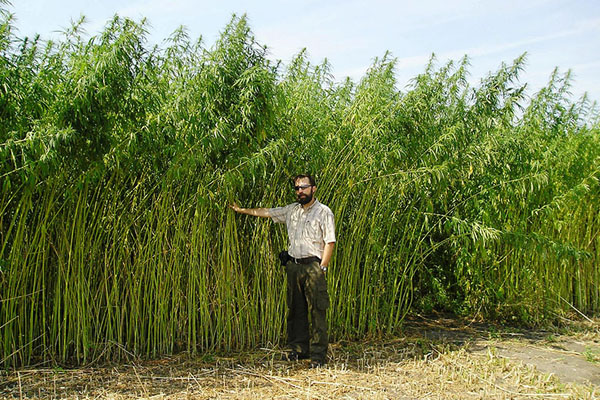Good Facts For Selecting Hemp Clothing
Wiki Article
Why Is Hemp More Bidegradable, Durable And Regenerative Than Eg Cotton?
Hemp is thought to be more biodegradable due to its inherent properties and the method in which hemp grows. Here's why- Biodegradability-
Natural Fiber- Hemp is a natural plant fiber and its fibers can be biodegradable. Hemp clothes and textiles break down in a natural manner over the passage of time. They return to the soil, not leaving behind any long-lasting waste. It is a striking contrast to synthetic fibers such as polyester, which take many years to degrade.
Hemp Textiles Lack Synthetic Additives The majority of Hemp fibers generally do not contain any synthetic additives. Some textiles made of cotton however might be treated with synthetic chemicals like finishing and dyes that hinder biodegradation.
Durability-
Hemp fibers are known for their strength and durability. Hemp clothing and textiles are less prone to wear and tear and last longer in comparison to cotton-based products. Hemp clothes are tough and can be washed many often before showing indications of wear.
Less Prone to Pillingless prone to pilling Hemp fabrics are less susceptible to pilling (the creation of small, fuzzy balls on the fabric's surface) compared to cotton. This feature contributes greatly to the durability and quality of hemp fabric.
Regenerative Agriculture-
Health of the soil Hemp cultivation can be regenerative when it is practiced sustainably. Hemp is a plant with an extensive root structure that can prevent compaction and soil erosion. It also helps improve soil health by aerating and increasing microbes' activity. This regenerative element could leave the soil in better shape for future crops.
Low environmental impact. Methods for producing sustainable hemp tend to be characterized by a low level of use of pesticides or weedicides. This reduces environmental harm. The cultivation of cotton, which is based on synthetic chemicals could result in soil degradation and water contamination.
Water Efficiency-
Hemp typically requires less cotton to thrive. Its drought-resistant qualities permit it to flourish in conditions of minimal irrigation or rainfall. It's a water-efficient choice particularly for areas that are resource-limited.
Crop Rotation- Hemp can be integrated in crop rotation systems that can enhance overall soil health and reduce the possibility of soil loss and build-up of diseases. The practice of crop rotation in the cotton industry is less frequent.
Hemp is a versatile substance that can be used to a variety of products including building materials, clothing, textiles and even paper. The versatility of hemp means that it is able to support a variety of industries using eco-friendly, sustainable practices.
While hemp does offer these advantages, it is essential to be aware that both hemp and cotton are produced either sustainably or not, depending on the farming practices used and the techniques used to process them. The choice of hemp products manufactured using environmentally friendly and ethical methods will increase its environmental advantages. In a similar way using organic cotton can help alleviate some environmental concerns related to traditional cotton production. Read the top hemp clothes for blog info including jungmaven sweatshirt, mens hemp t shirts, hemp t shirts wholesale, 100 hemp clothing, hemp underwear, hemp tee shirts, hemp clothing for men, hemp tee shirts, mens hemp trousers, hemp textiles and more.

What Are The Advantages Of Hemp Fibers In Terms Of Carbon Sequestration?
Hemp fibers aid in carbon storage, sustainability, and crop rotation in a variety. They are an ideal option for agricultural and textile production.
Rapid growth- Hemp is a fast-growing plant that matures between 70-120 days, based on the variety and growing conditions. Photosynthesis is the process by which hemp plants absorb the CO2 from the atmosphere during their rapid growth. Carbon uptake is a major contributor to carbon sequestration and reduces CO2 levels in the air.
Biomass Production- Hemp is known for its high biomass production. The plant's dense and tall foliage produces a significant amount of organic materials. The biomass, when mixed in the soil or used for various purposes, could contribute to the accumulation of carbon.
Sustainability:
The use of minimal chemicals is Hemp cultivation typically requires less herbicides and pesticides made of synthetics when than other crops, like cotton. The natural resistance of hemp to a variety of diseases, pests and weeds minimizes the need of chemical interventions. Organic hemp farming is a sustainable way of cultivating hemp since it does not use synthetic chemicals.
Hemp can be irrigated using little water, unlike other plants that require a lot of water, like cotton. This makes it more durable in areas that are deprived of water resources.
Hemp roots are deep and aid in improving soil quality. Its roots deep can reduce runoff by stabilizing soil and improving soil structure. Hemp cultivation also increases soil fertility by increasing microbial soil activity.
Hemp is a great crop to incorporate into rotation systems. Crop rotation involves the alternation of different crops in one field. This practice can help break cycle of diseases and pests, reduce soil depletion, and improve the soil's structure. Hemp's importance in crop rotation is crucial to the sustainability of farming.
Rotation of the crop
Hemp can be a great addition to the rotation of other crops, such as grains, legumes, or vegetables. Diversification is crucial to maintain soil health, reducing the risk of pests or illnesses that are unique to specific crops, and encouraging a balanced nutrient cycle.
Hemp’s deep-rooted roots can penetrate soils and help aerate them, reducing compaction. This also improves the water infiltration. The soil structure improves after the harvest of hemp, which benefits other crops.
In the end, hemp fibers enhance carbon sequestration and sustainability, as well as crop rotation, and water efficiency due to their rapid growth, biomass production and minimal chemical needs. These characteristics make hemp cultivation an environmentally friendly and sustainable agriculture practice. Follow the most popular breaking news for blog examples including hemp fabric by the yard, jungmaven clothing, 100 hemp clothing, hemp and cotton fabric, patagonia hemp jacket, patagonia hemp vest, hemp apparel fabric, t shirt hemp, mens hemp t shirts, dash hemp clothing and more.

What outdoor activities does bamboo attire not fit for and the reason?
Bamboo clothing transforms outdoor activities due to its ease of wearing, performance as well as its durability and unique blend. Here are some outdoor pursuits that bamboo-based clothes are making huge strides: Hiking-
Why bamboo-based clothing has exceptional moisture-wicking properties that keep the hiker dry and cool. The breathability of the fabric aids in maintaining your body's temperature on long hikes regardless of the conditions of weather. In addition the softness and comfort of bamboo fabric helps reduce the chance of chafing and irritation.
Trail Running
Why is this? Bamboo clothing is breathable and moisture-wicking and wicks away moisture, both of which are essential to trail runners. It helps keep runners cool, dry and helps prevent irritation and chafing while they work out.
Camping-
Why- Bamboo clothing is suitable for wear all day long and is suitable for camping excursions. Softness and moisture-wicking abilities ensure campers remain dry and comfortable on the campsite, whether making tents or cooking.
Backpacking-
The reason backpackers require light clothes that are breathable and can withstand a wide range of conditions. Bamboo clothing's flexibility, comfort and capacity to regulate body temperature makes it the perfect choice for backpacking trips that last a long time.
Climbing-
Why? Climbers love bamboo's versatility and the freedom to move. The properties of bamboo that wick moisture help climbers stay dry and comfortable during difficult ascents. Moreover, its softness minimizes the risk of skin irritation caused by gear and harnesses.
Mountain Biking
What is the reason mountain bikers need clothes that are breathable and wick moisture away to be comfortable during intense rides. Bamboo-based clothing is ideal for mountain biking since it regulates temperature as well as manages moisture.
Yoga and Outdoor Fitness
The reason - Bamboo's softness, flexibility and moisture wicking capabilities make it an ideal choice for outdoor and yoga. It offers a broad range of motion and is a comfortable choice for those who practice while exercising.
Fishing-
Why? Fishermen appreciate bamboo clothes for their comfort and its moisture-wicking qualities particularly when they spend long hours on water. Bamboo clothing keeps their bodies dry and also regulates the body temperature which helps reduce discomfort and irritation.
and Adventure Travel and Adventure Travel
WhyWhat is it? Bamboo clothing is perfect for travellers who are exploring various climates and settings. Its versatility, comfort, and fast drying properties make it an an excellent choice for adventure travel where space and luggage weight is limited.
Sustainability-Focused Activities-
Why- Outdoor fans who value sustainability and environmental responsibility choose bamboo-based clothing because of bamboo's ecologically friendly nature. It's a great option for those who are interested in environmental sustainability and sustainable practices while engaging in outdoor pursuits.
Summary: Bamboo clothing provides the comfort of moisture management, as well as temperature control. Bamboo clothing is adaptable, making it suitable for various outdoor pursuits. Check out the recommended my response about bamboo clothing for blog tips including bamboo mens shirts, bamboo sun shirt, bamboo cay shirts christmas, checkered bamboo pajamas, bamboo mens shirts, clothes made from bamboo fiber, bamboo tank tops, bamboo sports clothing, bamboo bed clothes, bamboo fishing shirts and more.
